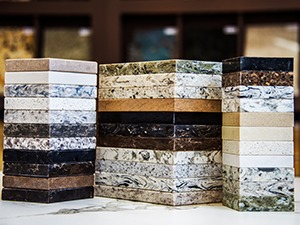April 26, 2022
 Marble and other calcium-based natural stones are sometimes sold as granite. Since there are differences between marble and granite when it comes to acid sensitivity and porosity, accurately identifying stone will, in most cases, allow stone owners to predict how their stone will react if it is exposed to acidic substances or moisture and take the necessary precautions to avoid etch damage and staining. So how do you avoid etch damage and stains associated with stone misidentification? Here are the details.
Marble and other calcium-based natural stones are sometimes sold as granite. Since there are differences between marble and granite when it comes to acid sensitivity and porosity, accurately identifying stone will, in most cases, allow stone owners to predict how their stone will react if it is exposed to acidic substances or moisture and take the necessary precautions to avoid etch damage and staining. So how do you avoid etch damage and stains associated with stone misidentification? Here are the details.The Science Behind Etching and Staining
Acidic substances, such as lemon juice or wine, will chemically react with calcium carbonate in marble, resulting in etch damage to the finish. In general, granite is not acid-sensitive, and most cases, as long as your granite is not misidentified marble, you should not need to worry about granite etch damage. However, some granites contain an acid-sensitive calcium binder mineral, which can etch.How to Avoid Etch Damage and Stains
One sure way to prevent etch and stain damage on countertops is to never allow your stone to come into contact with acidic or colorful substances. Obviously, this is completely unrealistic and impractical. The good news is that there are new protection treatments available on the market today that actually prevent etching and stains. Contact us to learn more. Otherwise, here are some precautions you can take:What To Do If Your Countertop Is Already Etched or Stained
If your countertop has a small etch or stain, it may be possible to remove it yourself, if you are so inclined. Watch this how-to video on etch removal or check out our Stain Removal Application, which includes a how-to video on stain removal. You are always welcome to give us a call with specific questions or to schedule professional natural stone countertop restoration services.